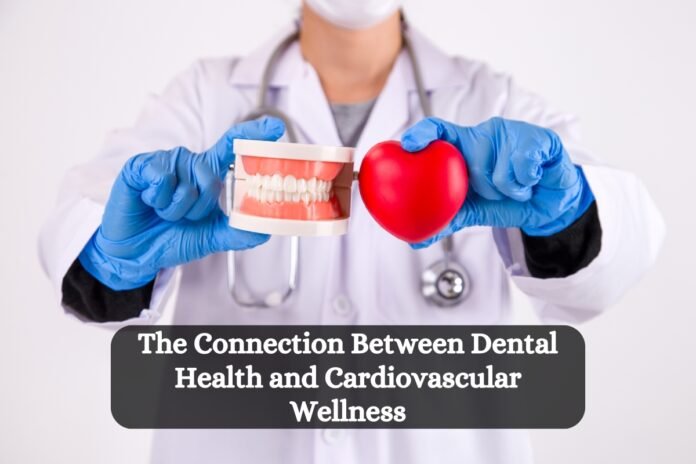When it comes to health, most people view dental care and heart health as two separate areas of focus. However, emerging research has unveiled a surprising and significant link between the two. Good oral hygiene does more than keep your teeth clean and your smile bright—it can also protect your heart. Neglecting dental health, on the other hand, can lead to more than cavities and gum disease; it may increase your risk of serious cardiovascular conditions. In this article, we will explore the intricate relationship between dental health and cardiovascular wellness, supported by research and practical advice on maintaining both.
How Dental Health Impacts Cardiovascular Wellness?
The connection between oral and heart health lies in the role of bacteria and inflammation. Your mouth is a gateway to the rest of your body, and the health of your teeth and gums can reflect and influence your overall health.
Inflammation as a Key Link:
Gum disease, or periodontal disease, is an infection of the tissues that hold your teeth in place. It often begins as gingivitis, with symptoms like swollen and bleeding gums. Left untreated, gum disease can progress, causing significant inflammation.
When this happens, bacteria can enter the bloodstream and travel to other parts of the body, including the heart. This bacterial spread can trigger inflammation in the blood vessels, which is a key factor in the development of cardiovascular disease.
Impact of Oral Bacteria on the Heart:
Certain oral bacteria associated with gum disease, such as Streptococcus mutans and Porphyromonas gingivalis, can reach the heart through the bloodstream. These bacteria may attach to damaged areas of the heart, leading to endocarditis, an infection of the heart’s inner lining.
Formation of Plaque in Arteries:
The same bacteria that cause gum disease can contribute to atherosclerosis, a condition where fatty deposits build up on the walls of arteries. This buildup narrows the arteries, making it harder for blood to flow and increasing the risk of heart attacks and strokes.
Shared Risk Factors:
Poor dental health and heart disease share several common risk factors, including smoking, poor diet, and diabetes. Addressing these risk factors can improve both oral and cardiovascular health.
Scientific Evidence Supporting the Link
Numerous studies highlight the association between dental and heart health.
- A study published by the American Heart Association revealed that individuals with gum disease are nearly twice as likely to develop heart disease compared to those with healthy gums.
- Research on chronic inflammation shows that high levels of C-reactive protein (CRP), a marker for inflammation, are linked to both gum disease and heart conditions.
- Studies suggest that treatment of periodontal disease may reduce systemic inflammation, potentially benefiting heart health.
While more research is needed to confirm whether treating gum disease directly reduces the risk of heart disease, these findings underscore the importance of maintaining good oral hygiene.
Signs of Poor Oral Health to Watch For
Recognizing and addressing oral health issues early can help reduce the risk of complications that may affect your heart. Common signs of poor dental health include:
- Red, swollen, or bleeding gums
- Persistent bad breath or a bad taste in the mouth
- Pain while chewing or sensitivity to hot and cold
- Receding gums or loose teeth
- Formation of pus around the teeth or gums
If you notice any of these symptoms, consult a dentist promptly to prevent further complications.
Practical Tips to Maintain Oral and Heart Health
Maintaining good oral hygiene is not only essential for your teeth and gums but also beneficial for your cardiovascular health. Here’s how you can protect both:
Brush and Floss Daily:
Brush your teeth at least twice a day with fluoride toothpaste and floss once daily to remove plaque and bacteria that can lead to gum disease.
Visit Your Dentist Regularly:
Schedule regular dental check-ups and professional cleanings. A dentist can identify early signs of gum disease and address them before they worsen.
Quit Smoking:
Smoking is a major risk factor for both gum disease and cardiovascular conditions. Quitting can improve your overall health significantly.
Adopt a Heart-Healthy Diet:
A balanced diet rich in fruits, vegetables, whole grains, and lean proteins supports both oral and heart health. Minimize sugar intake to reduce the risk of cavities and gum disease.
Manage Chronic Conditions:
Conditions like diabetes increase the risk of both gum disease and heart disease. Properly managing these conditions can improve your overall health.
Practice Stress Management:
Stress can weaken your immune system, making you more susceptible to infections, including gum disease. Incorporate stress-relief techniques like meditation or physical activity into your routine.
Why Awareness Matters?
The link between dental health and cardiovascular wellness underscores the need for a holistic approach to health care. Awareness campaigns conducted by a heart care hospital in Pune or similar institutions can emphasize the importance of integrating oral hygiene into broader health strategies.
Final Thoughts
Your oral health is more closely connected to your heart than you might realize. Simple habits like brushing, flossing, and visiting your dentist regularly can do more than just protect your teeth—they can also lower your risk of serious cardiovascular conditions. By caring for your teeth and gums, you’re not just investing in a brighter smile but also in a healthier heart and a better quality of life. Taking proactive steps today can pave the way for a healthier tomorrow.



